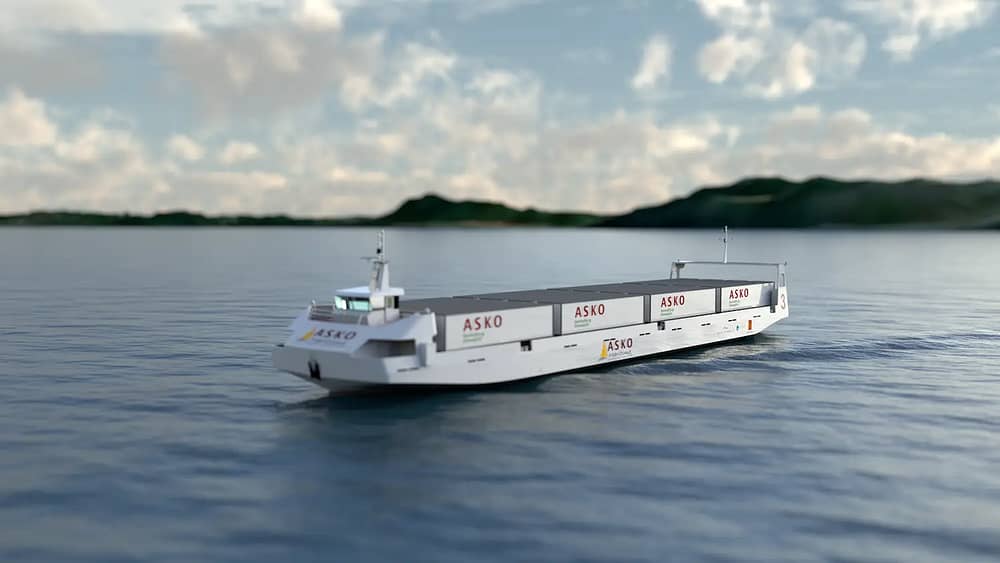Asko Maritime first out using Hagal’s battery technology

Asko Maritime is the first out with electrified and self-propelling ferries. Now they will also utilise used car batteries and Hagal technology, setting a new standard for zero-emission transportation.
In 2022, the world’s first battery-electric powered driverless RORO (roll on-roll off) ferry will start its journey between Horten and Moss. In the Port of Horten, a battery solution built on Norwegian technology from Hagal, will enable used car batteries to become green energy for shore power and charging stations. This ensures a sustainable power supply to battery-electric trucks and ships in the company’s zero-emission transport chain. The pilot project, which is a collaboration between Asko Maritime and Hagal, will pave the way for a more sustainable business model in the transport industry.
–To create positive changes we must take the lead and show how innovation can challenge the status quo. The innovative battery technology that Hagal is behind, means that we can reuse batteries from electric cars, eventually also from our own transport fleet, as a stable, renewable and cost-effective energy source. Here we see great opportunities, says Kai Just Olsen, the CEO of Asko Maritime.
For Hagal, the start of the pilot project will be a major milestone. After almost three years of hard work, they can finally release the full version technology of Rebel Core in the new year. Using artificial intelligence, the company will optimise and extend the life of battery cells. The technology will diagnose and recover used batteries, which creates a more optimal circular economy.
Christian Ringvold is looking forward to showing that Norway has more battery innovation to offer.
–The electrification of the transport sector and other industries is well underway, but in the wake of the green shift come challenges related to power grid congestion, high CO2 footprint for production of raw materials and cells for batteries, and in the long run also raw material shortages. Reusing batteries is absolutely crucial when it comes to reducing emissions, storing energy and securing a balanced, cost-effective power consumption, he explains.
Ensuring reuse on a large scale
For Asko Maritime it was important to find a long-term solution which can be gradually developed.
–Hagal’s technology enables large-scale reuse. Initially, a 250kWh battery module will be installed. In the longer term, the solution will be expanded up to 1MW and provide energy for both trucks and ships, says Just Olsen.
-When a leading player such as Asko takes the lead and shows the way, we hope it will become easier for other companies to follow after. For Hagal, the strategic collaboration with ASKO Maritime is just the beginning of something that can be very big, enthuses the Hagal CEO.
Uniquely positioned for the green shift
There are several forces in the market that give Hagal good traction. In Norway alone, more than 100,000 electric car batteries will be sent for recycling by 2030. At the European level, 200,000 tonnes of lithium batteries must be recycled in the same period. In addition, there is a new European battery directive on the steps that sets stricter requirements for reuse and traceability in the batteries’ value chain.
– For more than ten years, Norway has led electric car sales in Europe. This means that we have a unique and early access to used car batteries. We can transform the transport industry, but also many other industries. Everything is in place for Hagal in a market that is gaining momentum, Ringvold emphasises.